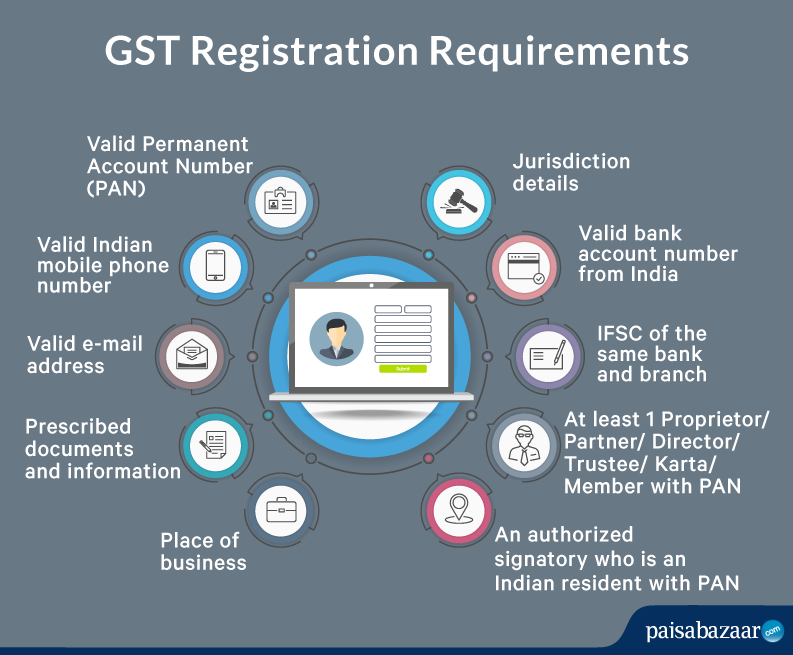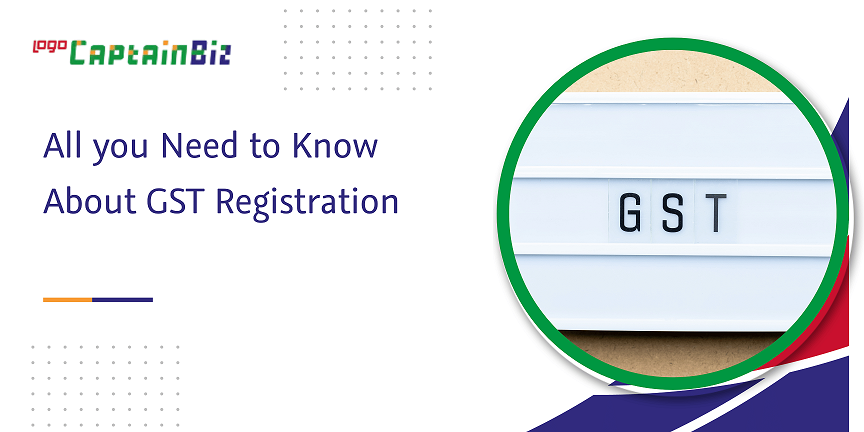Why Singapore GST Registration is Critical for Your Startup
Why Singapore GST Registration is Critical for Your Startup
Blog Article
The Ultimate Guide to Streamlining the GST Registration Refine and Requirements for Small Company Owners

Comprehending GST Fundamentals
To understand the basics of the Goods and Solutions Tax (GST) system, local business owners should first understand its underlying effects and principles. GST is a value-added tax levied on a lot of items and services for residential intake. It aims to improve the taxation process by changing several indirect tax obligations enforced by the state and central governments. Under the GST routine, companies are needed to gather and sign up tax on part of the government, making certain transparency and conformity.
One of the crucial principles of GST is input tax debt, which enables services to declare debt for taxes paid on their purchases. This mechanism avoids the plunging result of tax obligations and advertises performance in the tax obligation system. Additionally, GST is a destination-based tax obligation, indicating that the tax is imposed at the point of consumption as opposed to the point of origin. This ensures reasonable circulation of tax profits amongst states based upon where the services or goods are eaten. Recognizing these standard principles is essential for tiny service proprietors to browse the complexities of the GST system and make sure compliance with the law.
Eligibility Standards for Registration
Having developed a fundamental understanding of GST principles, small business proprietors need to now meet specific qualification requirements to continue with the enrollment procedure. In India, entities engaged in the supply of products or solutions with a yearly accumulation turnover going beyond Rs. 40 lakhs (Rs. 10 lakhs for special classification states) are called for to sign up for GST. Additionally, particular organizations such as those associated with inter-state supply of products, casual taxed individuals, and those required to pay tax under the reverse charge mechanism should sign up for GST regardless of their turn over. Organizations that were signed up under the previous tax regime (VAT, solution tax obligation, and so on) are additionally mandated to register under GST. Nonetheless, farming organizations that just provide generate out of main manufacturing are exempt from GST enrollment. It is critical for business proprietors to thoroughly assess their eligibility based upon these requirements to ensure conformity with the law and stay clear of any kind of charges for non-compliance.
Files Needed for GST Registration

Simplified Enrollment Process Steps
Adhering to the collection and confirmation of the requisite files, the registration procedure for additional hints GST can be navigated through a series of streamlined actions created to facilitate effective compliance for little service owners. Upon successful confirmation, an Application Recommendation Number (ARN) is provided, indicating the completion of the GST enrollment procedure. By complying with these streamlined actions, small organization proprietors can properly register for GST and make sure conformity with tax obligation policies.
Tips for Ensuring Conformity
To keep regulatory adherence and functional integrity, attentive oversight and positive actions are critical in making sure compliance with GST demands for small company owners. Small company proprietors must stay updated with GST laws, submitting deadlines, and any kind of modifications in tax obligation rates to avoid penalties and preserve an excellent standing with tax authorities. One vital idea for conformity is to maintain accurate and comprehensive documents of all purchases, consisting of receipts, invoices, and expenses associated to GST. Consistently integrating economic records with GST returns can assist in recognizing and rectifying any kind of inconsistencies quickly. Additionally, conducting regular inner audits or looking for professional aid can make certain that business is following Get More Information all GST guidelines appropriately. It is additionally vital for local business proprietors to buy GST-compliant bookkeeping software application that can enhance the tax obligation declaring process and lessen errors. Participating in GST understanding workshops or training programs can boost understanding and conformity with GST laws, ultimately benefiting the company in the lengthy run.
Conclusion
To conclude, small company owners need to understand the basics of GST, satisfy the eligibility criteria, collect required records, and adhere to the simplified enrollment process actions to make sure compliance. By simplifying the GST registration procedure and needs, small company proprietors can prevent fines and run their services smoothly within the legal framework - Singapore GST Registration. It is critical for small company proprietors to stay compliant and educated with GST regulations to keep a successful organization procedure
Small organization proprietors looking for GST registration need to guarantee they collect and send the needed files to finish the registration procedure effectively. The papers required for GST registration generally include proof of organization enrollment or consolidation, PAN (Irreversible Account Number) card of the service entity, identity and address evidence of the promoters/partners/directors, photographs, address proof of the place of business, bank account statements or canceled cheques, and permission kinds. Attending GST awareness workshops or training programs can boost understanding and compliance with GST laws, eventually benefiting the organization in the lengthy run.
By streamlining the GST registration process and requirements, tiny company proprietors can stay clear of penalties and run their organizations smoothly within the legal structure. It is important for small service owners to stay visit the website certified and educated with GST regulations to preserve a successful service operation.
Report this page